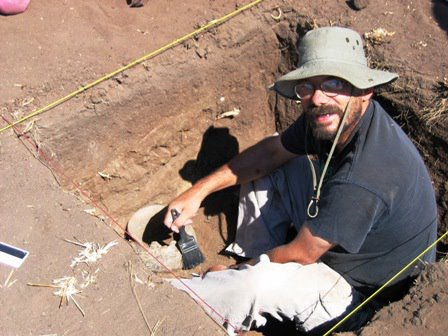In our area of northern California, the Sacramento Zoo courageously defied popular opinion and last week offered the first of three public lectures on evolution. In the Letters to the Editor section of the Sacramento Bee this morning, Elk Grove resident Wade Schauer questioned speaker Maureen Stanton's statement that "There is no real debate in legitimate scientific circles" regarding evolutionary theory. Mr. Schauer suggested that such a statement is either misleading or that Dr. Stanton is unaware of the facts. He justifies his position with the following:
In the Jan. 30 edition of the New Anatomist Journal, University of Pittsburgh professor of anthropology Jeffrey H. Schwartz presents evidence in support of his "Sudden Origins" theory, which counters the Darwinian version of "small gradual changes." He came up with this theory because the fossil record doesn't support Darwinian gradualism (few transitional fossils exist) and because recent discoveries in cell biology have shown that, "Cells don't like to change and don't do so easily".
I could be wrong, but I'm willing to bet that Mr. Schauer is attempting to hoodwink a large readership with a few well placed (and out of context) sentences and references to respected researchers that look like they might be countering "Darwinism". I also doubt that Mr. Schauer has read Schwartz's paper or he would not be so quick to offer it as a scientific antidote to Darwin. Schwartz offers an alternative to the "gradual change" scenario most frequently argued by evolutionary scientists; and his 2000 book, Sudden Origins: Fossils, Genes and the Emergence of Species argues for relatively rapid change in animal form, thus "explaining" perceived transitional gaps in the fossil record. But make no mistake: the mechanism he offers still relies on random genetic changes (in homeobox genes controlling development, not accumulated small mutations over time) that result in "macroevolutionary" changes. And despite that fact that Schwartz described cells as not liking to change, he's not even remotely talking about irreducible complexity. Moreover, it is not clear that Schwartz's idea has survived further scrutiny among the science community anyway. He has certainly exaggerated the case for few transitional fossils. John Hawks provides some quotes from Ernst Mayr's review of the Schwartz book. Mayr deftly shows why "phenotypic discontinuity" (what intelligent design advocates would call a lack of transitional fossils) is not a problem for Darwinian theory:
Phenotypic discontinuity does not conflict with Darwinian theory. If, for instance, a phyletic line evolves from the possession of two to the possession of three molars, the change does not occur by mutations giving one tenth, later one fifth, and one half of a new molar, but by one tenth, later one fifth, and then one half of the population having one new molar.
Friday, March 03, 2006
Subscribe to:
Post Comments (Atom)




1 comment:
It goes with out saying that Schwartz also mentioned that he was trying to provide a mechanism for Punk Ek - one which he feels Gould, Eldredge and Stanley have not provided.
Post a Comment